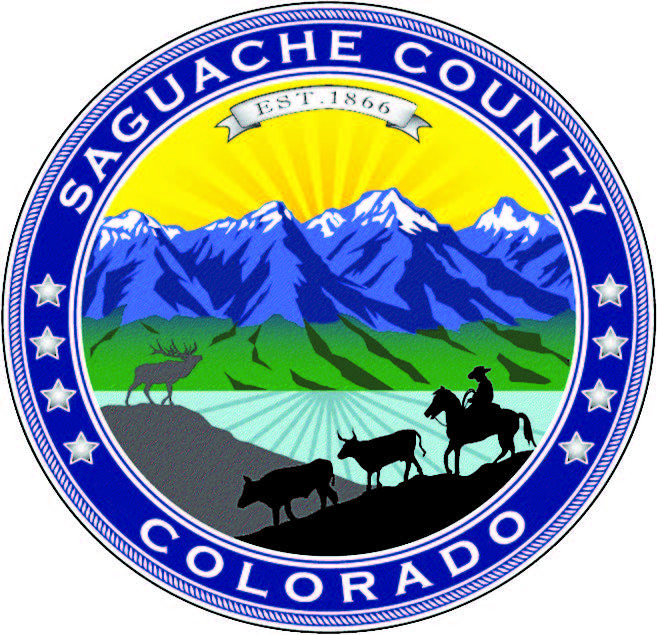Excise taxes spark questions in Saguache County

SAGUACHE COUNTY — Questions about marijuana excise tax collections in Saguache County might reveal substantial revenue shortfalls for local governments across the state.
Even when operators submit their monthly revenue reports and follow all Colorado Marijuana Enforcement Division (MED) requirements, negotiated contract prices between unaffiliated businesses can get hazy.
Since Colorado’s cannabis tax collections for retail sales began in 2014, the number of the state’s 64 counties that authorized commercialization has increased from 34 to 44. But the collections vary from county to county and according to medical and recreational marijuana regulations.
In Alamosa County, for example, the approval of medical marijuana created an excise tax revenue stream. However, recreational sales are not authorized, so the county cannot collect retail sales taxes.
The state-collected excise tax pie slices differently in other jurisdictions like Saguache County where separate towns also collect excise taxes from retail marijuana transactions.
At a town board meeting in Moffat on Dec. 6, administrators and residents discussed a potential revenue hole in local and state excise taxes. As noted on the state website, the Colorado Department of Revenue “… does not administer any marijuana excise taxes imposed by any city, county, special district, or other local jurisdiction.”
The department does, however, administer the funds that are collected locally, delivered to Denver, and returned for redistribution.
In 2021, Moffat administered $109,528 in excise taxes. As of Dec. 6, the town had collected $50,257 for 2022. Excise tax returns are due on the 20th of every month, and operators must complete separate lines for calculating payments, as well as penalties and interest.
The Local Retail Marijuana Excise Tax rate in Moffat is 2 percent for the first year, 3 percent for the second, and 5 percent for operations in business for three years or more.
The calculations consider quantity, weight, and rate per pound. The local excise tax is in addition to the state excise tax rate, which is different.
Sales taxes are different too. Saguache County began reporting to the state in April 2014 but did not report numbers until October 2017 when the monthly Marijuana State Sales Tax collection was $20,506.45. The historically highest haul came in August of 2021 ($71,842). In November 2022, the county received $47,828.47.
But the Marijuana State Sales Tax is only one of many taxes. “Recreational” and “retail” have become synonymous because of the excise tax requirement. Parsed further, the 15 percent excise tax for retail transactions between affiliated and unaffiliated producers can vary according to the contract price. Like the value reported on a bill of sale for a private car trade, the sale price for the transfer may fall short of the true blue book value.
Medical and recreational operators must account for every seed, bud, and raw plant they generate (a total of seven categories). The Colorado Department of Revenue tracks the Average Market Rate (AMR) for all seven products to calculate the taxable value for retail transactions. Unlike retailers, medical marijuana operators are not required to pay excise taxes.
At stake for local governments is 10 percent of the 15 percent value determined for the first sale or transfer from a retail cultivation facility to a retail store or processor. The calculation requires more scrutiny first. If the transfer occurs between cultivation facilities, no tax is assessed.
If the transfer or sale involves affiliated operations, the 15 percent is based on the AMR. To be “affiliated” means the owners are the same people or entities, are related by blood or marriage, or are under common control. The AMR for each of the seven marijuana products is continually updated at the state level. Affiliated owners are required to report monthly data based on the current AMR numbers.
The AMR calculations for the period between Oct. 1 and Dec. 31, 2022, are $658 per pound for retail bud, $249 for retail trim, and $13 for each immature plant. The average price per pound for bud destined for extraction is $277, which is $200 more than the average trim price for extraction. The price for whole wet plant material is $126 per pound. Seeds are worth $4 apiece.
The AMR does not apply for unaffiliated retail operators. Instead, their contract price dictates the 15 percent tax. Herein lies the crux of the calculation. Even if operators do not sell or transfer product in a given month, they cannot enter a price value of “0” in the report. Some operators who trade with retailers in other counties reportedly choose to enter a penny to complete the field, regardless of the quantity sold or transferred. Consequently, the excise taxes that trickle back to the local level are a fraction of what the locals should receive.
Statewide, the 15 percent retail marijuana excise tax goes to public school construction and the Public School Fund. The annual budget directs the first $40 million to construction costs, and the Public School Fund receives the remainder collected.



